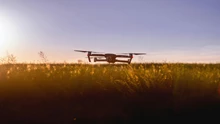
IAS induces yield loss, which has major consequences for livelihoods. They are also to blame for the loss or decline of other species. According to a 2021 study, the impact of the IAS on agriculture and other important food production initiatives might cost Africa $3.66 trillion per year.
What are Invasive Alien Species?
An alien species has been introduced outside of its native range, explains the International Union for the Conservation of Nature. People may bring them in by accident or on purpose into areas where they do not exist.
Research methodology
According to another research conducted by an international team of experts from 13 nations, there are approximately 18,000 invasive alien species worldwide.
The latest study on over 200 potentially dangerous alien plant species that might disrupt agriculture, forestry, and biodiversity was done in Ghana. The Centre for Agriculture and Bioscience International led the study, which was published in the journal NeoBiota.
The goal of the study was to use horizon scanning to create a list of potentially invasive alien plant pests that might impair the agriculture, forestry, or biodiversity of Ghana if introduced.
The objective of the study was to enable the prioritization of measures such as pest risk assessments, preventive, surveillance, and contingency preparations. According to the researchers, it can serve as a model for future initiatives on plant pest prioritization in Africa and worldwide.
A panel of 23 subject matter experts from Ghana's research institutes and academics prioritized the project. Prioritization was accomplished through the use of a modified form of horizon scanning and consensus procedures.
A total of 110 arthropod species (101 insects and 9 mites) and 64 pathogenic species (14 bacteria, 16 fungi, 14 nematodes, seven water molds, and 13 viruses) were evaluated.
Research Findings
At the time of the evaluation, two of the 64 pathogenic species, Moniliophthora perniciosa, and Moniliophthora roreri, had not been documented anywhere in Africa, retaining 62 pathogenic organisms with a presence in the region.
The pink hibiscus mealybug and melon thrips were among the top arthropods prioritized by researchers. Cassava brown streak virus and Maize lethal necrosis disease are among the main pathogens highlighted.
Cassava, for example, is a major staple crop in Ghana, accounting for around 22% and 30% of agricultural Gross domestic product and daily calorie consumption, respectively. Cassava brown streak virus, which may diminish production by up to 70%, poses a threat to the crop.
Maize lethal necrosis disease has the potential to significantly disrupt maize output in Ghana, where the crop accounts for more than half of total cereal production. According to the report, the disease can inflict losses ranging from 50 to 90 percent, depending on the species of maize and the growth circumstances of the year.
Other species identified in Africa included 19 arthropods and 46 pathogenic species previously discovered in adjacent nations Burkina Faso, the Ivory Coast, and Togo.
Contaminants on Products and Cargos: Potential carriers of IAS
According to the research, the preponderance of arthropod species was likely to arrive as contaminants on goods and as stowaways in shipments from other countries around the world.











